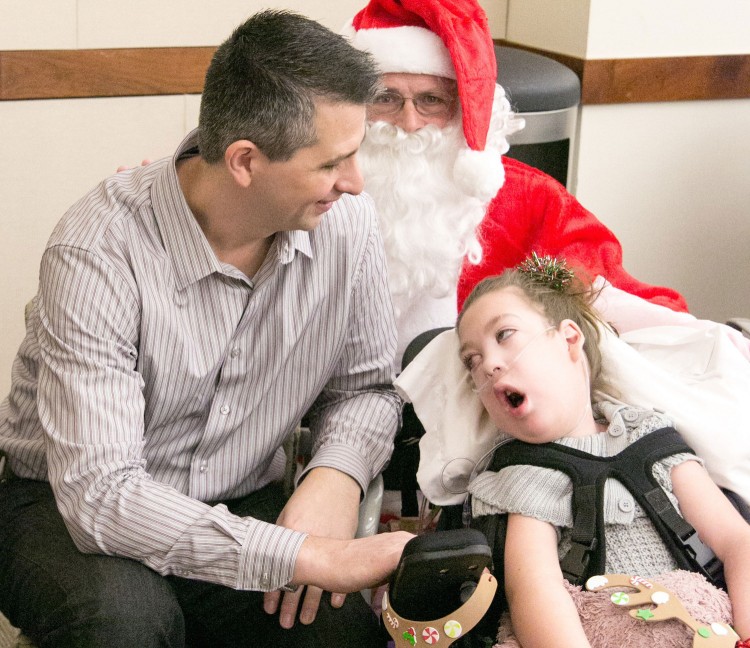My daughter, Casey, was born in 2006. If she had been born even a year or two sooner, chances are she would not have survived her birth. If it had been three to five years sooner, chances are I would not have survived, either. Medicine is constantly advancing. This has put us in an interesting position. We often refer to Casey as a pioneer. Medicine had advanced enough to save her life at the event of her birth trauma, but the rest of the medical world was not quite ready for her.
Early on doctors told us to prepare for the worst — there was no way could she survive the night (then the week, month, year, etc). After a while, her doctors realized they really don’t know what to expect from Casey. She is the first child they have seen like her so there is no medical textbook to guide them along her expectations. We are writing the book as we go.
Some of her symptoms are things the doctors are able to treat and/or predict, but her overall progression is a total mystery. Often they will try to treat something they have seen in other patients and Casey will react completely opposite of what they expect. Other times, her symptoms leave the entire room of medical professionals scratching their heads with no idea what to tell us.
As a parent, you want answers. Early on we were set on “fixing” everything. It was really hard initially to accept that the doctors were learning about Casey right alongside us. Yes, we have a diagnosis, but it really doesn’t mean much. Her primary diagnosis is so vague: hypoxic ischemic encephalopathy (HIE). Some kids with HIE are very mildly impaired, some are more severe and then there is Casey.
The first few times that we took Casey to a doctor and heard “I have never seen this before” or “Hmm, that’s not what I would expect” or the many varieties of that sentiment, we were frustrated. If the doctor couldn’t tell us what was going on, then where did that leave us? We hear this very often now. I think all of her care team (we are up to 16 doctors now) have said it at one point or another.
We saw something start to happen in these appointments. Yes, the doctors were not able to give us the answers, but they did not leave it at that. Casey’s doctors all started working together, and with us, to try to put the puzzle that is Casey together. They all readily use a new medical term now, too: Caseyism. “Caseyism” is a medical term describing a symptom that cannot be explained, predicted or treated, and does not pose an immediate threat to the patient. It is our goal to get this officially added to the medical dictionary one day.
Just because we don’t have the answers does not mean we are being left out in the cold. We have an amazing care team that really all want the best for Casey. If you find that your child is also a pioneer, or that doctors just don’t have the answers you are looking for, don’t give up hope. Build a team that will work together. Our team may not be able to come up with the answers, but they will do everything in their power to help us keep Casey healthy, home, comfortable and happy.
We have decided that having the best quality of life possible for her is way more important than labels and answers.

Follow this journey on Casey Barnes.
The Mighty is asking the following: Describe a moment when you were at a hospital and a medical staffer, fellow patient or a stranger made a negative or surprising comment that caught you off guard. How did you respond to it? If you’d like to participate, please send a blog post to community@themighty.com. Please include a photo for the piece, a photo of yourself and 1-2 sentence bio. Check out our Share Your Story page for more about our submission guidelines.
